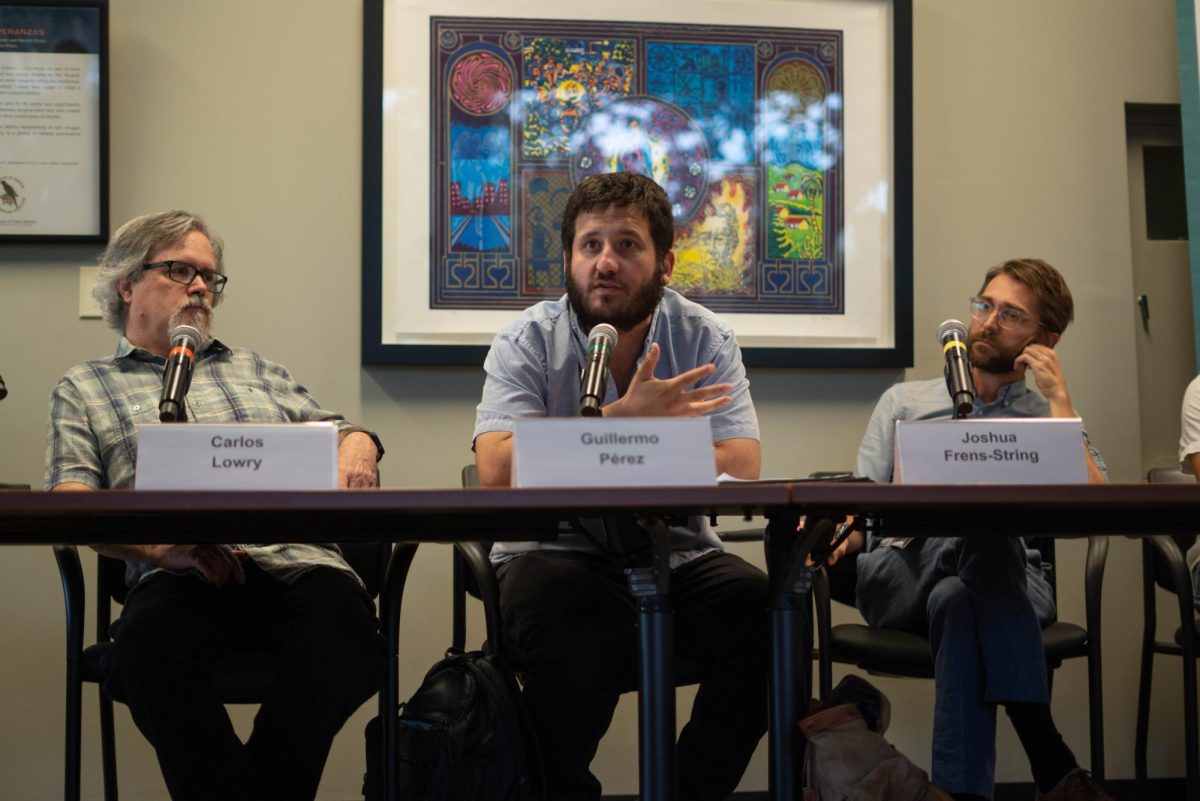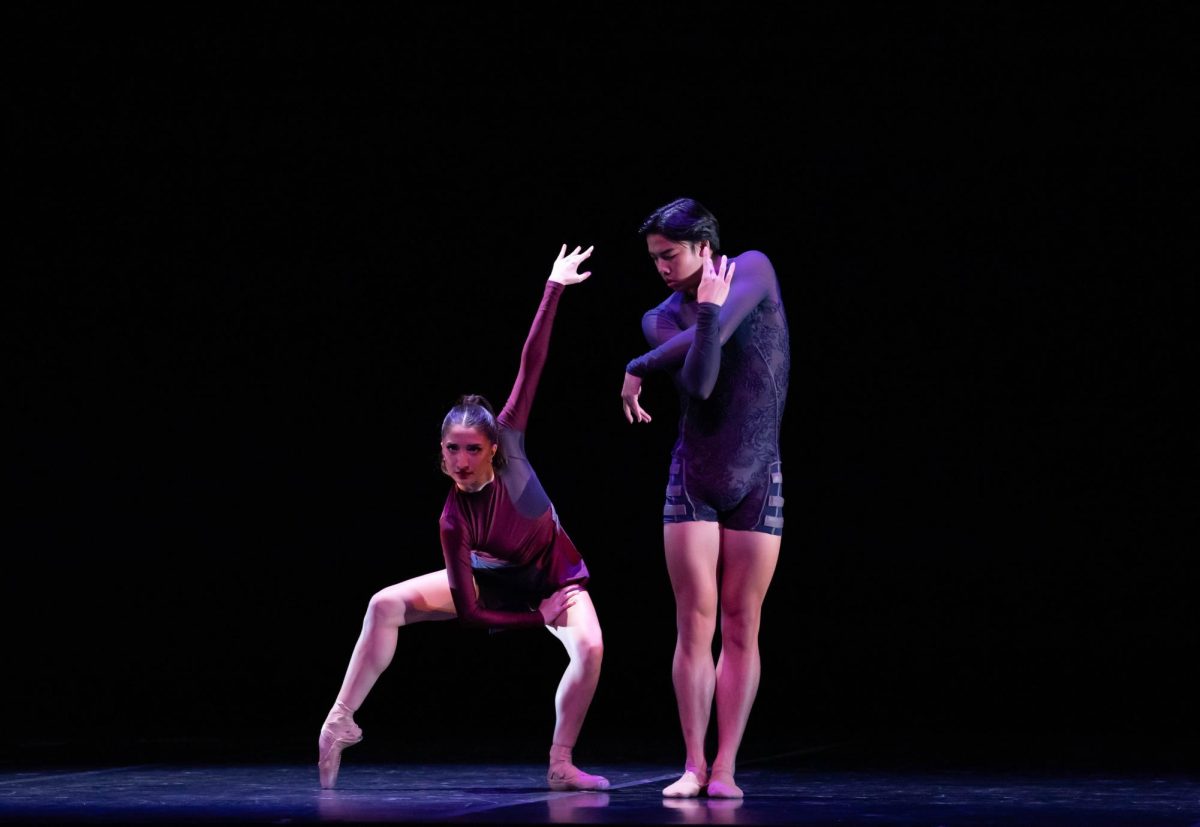A conference room in the Teresa Lozano Long Institute of Latin American Studies at the UT filled up with people of all walks of life eager to hear a Chilean panel speak about their experiences surrounding the dictatorship of Augusto Pinochet, 50 years after the Chilean coup of Sept. 11, 1973.
“It’s a big satisfaction to be able to use our contact network and our shared interest in the subject to open up the consciousness of young citizens in the United States,” said Paloma Díaz, assistant director of programs at LLILAS, in Spanish.
Díaz has been organizing discussions surrounding the coup for every tenth anniversary since 2003. This year’s panel, titled Testimonies and Remembrances, focused on sharing first-hand accounts of those who lived through the brief presidency of Salvador Allende, the coup itself and the difficult years during and directly following the dictatorship. The panel consisted of Paloma Díaz, Carlos Lowry, Pablo Millalen, Guillermo Pérez, Nathan Stone and was moderated by Joshua-Frens String.
“It’s a story that needs to be told,” said Lowry, a muralist and Austin resident of 45 years. “It’s important that people in the United States be aware that we played a role in (the coup), that it wasn’t something those people down there did all by themselves.”
The hour-and-a-half discussion was carried out in both English and Spanish and the diverse panel allowed for all types of perspectives.
“We wanted to craft an event that was on a more personal level,” Díaz said. “We wanted younger generations of students, we wanted my generation that was present, and we have a Chilean student who is Mapuche, who has a very important perspective. That structure gives us a very large span of ideas and experiences.”
This event was not only about the experiences of those invited to speak but also functioned as a way to inspire the young people of Texas to participate in politics in their state. For many places in the United States, the risk of losing their voting rights “is just around the corner,” Díaz said. She also mentioned the feeling of “apathy” found in young adults when she worked as a volunteer deputy following the election of Donald Trump.
“We know that democracy can be lost in a coup, but it can also be lost through systematic dismantling that takes away rights little by little,” Díaz said. “It’s like the effect of the frog in the boiling water. You don’t notice that it’s boiling until it’s too late.“
Despite the somber topic, the panelists spoke with much hope for the future. Many of the participants spoke about the bravery of the Chilean people back then and how that bravery is still found in the country, using as an example the massive protests led by young adults in 2019 against the Chilean government’s attempt to increase the public subway fare by 30 pesos.
“What we want to do is encourage you all to learn the history of other countries,” Díaz said. “And for you all to realize that the importance of voting is essential, and it is an inalienable right, and we must use it before it is lost.”
Yvette Niemeyer, one of the event attendees, said she attended the panel to learn more about the history of Chile during the era of Pinochet since her husband was a student during the dictatorship.
“I loved hearing them all,” Niemeyer said. “This was a fantastic panel. It made me understand a lot more about what Sept. 11 is in another part of the world.”
Editor’s note: This story was originally reported in Spanish. Check out more of our original Spanish reporting on our Texan en Español Reporting page.














